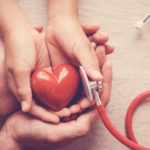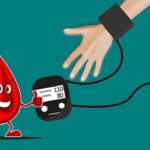offers several benefits such as increased alertness, longevity, and reduced risk of depression and cancer. However, excessive coffee consumption can have adverse effects on health. In this article, we will explore 7 signs that indicate you should stop drinking coffee for the sake of your well-being:
1 Acid Reflux
Coffee contains caffeine, which can relax the lower esophageal sphincter, causing stomach acid to back up into the esophagus in individuals with sensitive stomachs. According to the American Gastroenterological Association, to alleviate acid reflux, it is advisable to avoid caffeinated beverages such as coffee and soda.
 Acid Reflux
Acid Reflux
2 High Blood Pressure
Furthermore, the caffeine in coffee can temporarily raise blood pressure. Therefore, individuals with chronic high blood pressure should steer clear of this beverage, especially before engaging in activities that may further increase blood pressure, such as exercise or strenuous labor.
Nevertheless, coffee contains bioactive compounds with potent antioxidant properties that can help reduce oxidative stress and improve blood pressure. Thus, consider limiting your intake to no more than two cups of coffee per day.
 High Blood Pressure
High Blood Pressure
3 Sleep Disturbances
Sleeplessness or disrupted sleep is a common side effect of coffee consumption. Caffeine keeps you awake by blocking adenosine receptors in the brain that promote sleep.
Therefore, if you experience frequent sleep disturbances, it is best to avoid coffee and limit its intake within six hours of bedtime.
 Sleep Disturbances
Sleep Disturbances
4 Anxiety Disorders
Caffeine can cause the body to heat up, the heart to beat faster, and breathing to increase, mimicking the physical sensations of anxiety. Therefore, individuals with anxiety disorders may experience exacerbated symptoms if they consume excessive amounts of coffee.
Additionally, coffee can induce sleep deprivation, leading to fatigue and increased anxiety levels.
 Anxiety Disorders
Anxiety Disorders
5 Withdrawal Symptoms
If you experience the following symptoms when you abstain from coffee, you may be experiencing caffeine dependence:
-
Headache
-
Fatigue or drowsiness
-
Reduced alertness
-
Slower reaction time
-
Impaired memory
-
Flu-like symptoms, nausea, mood swings
 Withdrawal Symptoms
Withdrawal Symptoms
6 Menstrual Irregularities
Coffee can also affect women’s menstrual cycles. Excessive coffee consumption can lead to:
-
Heavier bleeding
-
Shorter or longer cycles
-
Suppressed ovulation
 Menstrual Irregularities
Menstrual Irregularities
7 Weight Gain
Coffee has been shown to aid in weight loss due to its appetite-suppressing and metabolism-boosting effects.
However, coffee can lead to sleep deprivation, which can subsequently contribute to weight gain. Additionally, excessive sugar and cream in coffee can significantly increase calorie intake.
 Weight Gain
Weight Gain
These are 7 signs that you should reduce your coffee intake for the sake of your health. We hope that this information will empower you to make informed choices and prioritize your well-being!
Source: Eatthis.com
Mothers’ Need for Awareness of Dual Activity of Breastfeeding and Watching TV
In the contemporary world, in which technology pervades our lives, some mothers tend to soothe their babies through nursing while simultaneously watching television. Although this practice may not appear to affect the infant, studies show that it can in fact have dire repercussions on the baby’s well-being, both in terms of physical health and mental growth. In this article, we will look at the possible reasons for this activity and its potential outcomes.






































